At the meeting of nearly 2,000 National Assembly deputies of all periods to celebrate the 80th anniversary of the successful August Revolution and National Day September 2 on the morning of August 27, 2025, General Secretary To Lam emphasized: “We are on a journey to extend our aspirations. On that journey, the National Assembly must be one step ahead in terms of institutions; must dare to open the way, dare to repair the way, dare to decide on difficult issues, new matters, and unprecedented fields.”
This is an important suggestion in the process of the National Assembly's activities to meet the requirements of the country's new development step.
Among them, Resolution No. 81/2025/UBTVQH15 dated June 27, 2025 of the National Assembly Standing Committee regulating the reorganization of the Court is one of the premises to pave the way, repair the way, and build a professional, honest, and people-serving judiciary.
VNA reporters wrote a series of three articles on this topic.
Article 3: Resolution 81: Institutionalizing the vision of judicial reform in Vietnam
To build a professional, honest, and people-serving judiciary, it requires strong innovation in the institutions, organization, and operating mechanisms of the Court, with key solutions being to perfect institutions and laws, innovate the organization and improve the capacity of staff, increase publicity and transparency, and strongly apply information technology.
From this orientation, Resolution 81 on streamlining the Court organization towards streamlining, effectiveness and efficiency was born as an institutional turning point in the process of judicial reform in Vietnam.
Institutional turning point
Professor, Dr. Phan Trung Ly (former Chairman of the National Assembly's Law Committee) affirmed that Resolution 81 is not only a decision on organizational structure, but also an institutional turning point that opens up strategic opportunities for improving the quality of operations of the Vietnamese Court system.
The reorganization of the Court system by region will be an opportunity to professionalize the team of judges and court staff, forming a team of competent and specialized judges who can try a variety of cases with higher quality.
This is also a step to enhance the independence and objectivity of the Court's adjudication. With the scope of jurisdiction not limited to small administrative units, the Regional Court will be less pressured by local administrative-social relations, contributing to realizing the principle of "Judges and People's Assessors adjudicating independently, only obeying the law."
In addition, Resolution 81 is also an opportunity to increase transparency, publicity and accountability. The new organizational structure facilitates standardization of work processes, unified management of records, increased publicity of judgments and decisions online, and the establishment of an internal accountability mechanism linked to the assessment of trial effectiveness - a core element of a modern rule-of-law state.
According to Professor, Dr. Phan Trung Ly, this is also an opportunity for digital transformation in judicial activities. Resolution 81 helps the Court to restructure the management system, invest in synchronous digital infrastructure, thereby deploying digital courts, electronic records, online trials, artificial intelligence in decision support, towards a smart judiciary, an inevitable trend in the new era.
From practical application, Chief Justice of the People's Court of Region 6 - Son La Luong Long Binh said that the increase in authority according to Resolution 81 creates favorable conditions for the People's Court of Region 6 - Son La in expanding the scope of trials and promoting the professional capacity of the team of judges.
Cases are resolved in a more centralized and unified manner, limiting overlapping and prolongation. The model of the Regional People's Court allows for the concentration of human resources, reducing the previous dispersion of judges and clerks; the assignment of cases is more effective and even, thereby improving the quality of resolving all types of cases.
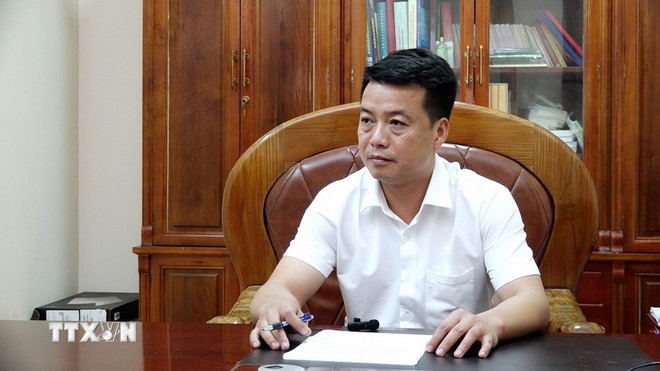
Chief Justice Luong Long Binh cited a typical example of the fact that the Regional Court does not have to transfer civil, family, and commercial cases that have been accepted and guided but are not under its jurisdiction (such as cases with foreign elements, requests to cancel individual administrative decisions, administrative complaints where the defendant is the Chairman of the People's Committee at district level or higher...) to the Provincial People's Court for settlement according to its jurisdiction as before. This creates conditions for the settlement of cases quickly, promptly, and saves costs for the people.
Challenges of "mind and vision" for judicial officers
Resolution 81 sets out new responsibilities for the three levels of Courts, in which the Regional Court model has a larger scale and authority than the previous District Court, so improving the professional qualifications, capacity and quality of officials and judges is a big challenge.
The team of judges must be clearly aware of their role and responsibility as those entrusted with the responsibility of "weighing and measuring" in protecting justice and fairness. Each decision not only demonstrates the ability to apply the law but also demonstrates political courage, professional ethics and deep social responsibility.
Chief Justice Luong Long Binh shared that identifying people as the key factor determining the effectiveness of implementing new authority, the unit has focused on comprehensively improving the capacity, courage and qualities of the team of judges and secretaries who are "politically steadfast, professionally skilled, proficient in their profession, and morally pure."
The District Court of Region 6 - Son La regularly organizes professional exchanges and draws experiences after each trial to unify the understanding and application of the law; enhances training, research, and learning to apply information technology in practical work.
Each cadre and civil servant is thoroughly imbued with strict public discipline, upholding professional ethics and a sense of responsibility of "serving the public, abiding by the law, being impartial and selfless."
In addition to professional training, the Court also requires standardizing the team and recruiting highly qualified people to meet the professional and ethical requirements of court staff in the context of judicial reform.
At the Hai Phong City People's Court, the work of cassation and retrial is considered a new type of work (after 10 years of changing the Law on the Organization of People's Courts), so judges and examiners will have many surprises when approaching the new litigation process. Therefore, the unit focuses on providing in-depth and systematic training on cassation and retrial procedures for judges, examiners, and clerks of the City Court; creating conditions for judges of regional courts to further improve their professional skills in adjudication fields, especially disputes with many difficult cases such as civil, economic, financial...
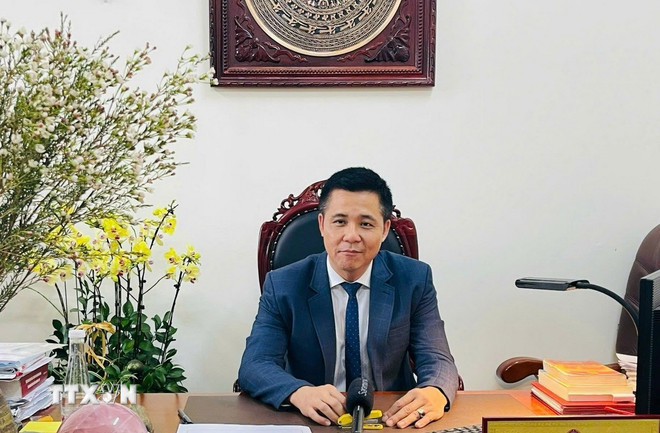
Deputy Chief Justice of Hai Phong City People's Court Nguyen Hai Bang said that in the process of implementing Resolution 81, the unit has creatively proposed many solutions and targets to encourage judges and court officials to improve their responsibility in handling work.
A typical solution is the "Same-day application processing" solution to overcome cumbersome administrative procedures, causing difficulties for people in the process of submitting lawsuits and requests.
Specifically, all petitions and requests from citizens must be processed on the same working day upon receipt. In case the petition needs to be amended or supplemented, the Court staff must be responsible for guiding the petitioner on all the contents and issues that need to be amended or supplemented; it is not allowed to request amendments or supplements to the petition multiple times.
For citizens' requests, petitions, complaints and denunciations, Hai Phong City People's Court directs that they must be received immediately and processed within the time limit prescribed by law.
If requests, suggestions, recommendations, reflections, complaints, or denunciations are unclear, they must be immediately guided in the spirit of service, respect, modesty, thoughtfulness, and dedication; ensure that all content requiring guidance is supported immediately, and the receipt and processing of applications must be recorded in a closely monitored logbook.
In addition, the People's Courts at two levels of Hai Phong city also launched the movement of judges "Close to the people - Understand the people - Help the people - For Justice", creating a competitive atmosphere in the unit. Each judge must be imbued with Uncle Ho's teachings, must be close to the people, understand the people, help the people, learn from the people; the trial process must ensure fairness and impartiality through concrete actions, by working scientifically, seriously, impartially, objectively, rationally, and emotionally.
These efforts of each judge, officer and court unit are aimed at contributing to the completion of assigned tasks and meeting new requirements according to the provisions of Resolution 81.
This Resolution not only creates a legal corridor to streamline the Court organization, but also lays the foundation for a professional, modern, humane and transparent judiciary. This is a turning point that opens the way for a strategic innovation of the Vietnamese judicial system, paving the way for a professional, honest and serving judiciary - truly a foundation of trust, a place to protect justice, human rights and civil rights in the new era./.
Lesson 1: “Repairing the Road” - Realizing the goal of grassroots-oriented justice
Lesson 2: “Opening the Way” - Reshaping Vietnam's Judicial Map
Source: https://www.vietnamplus.vn/bai-3-nghi-quyet-81-the-che-hoa-tam-nhin-cai-cach-tu-phap-viet-nam-post1075891.vnp








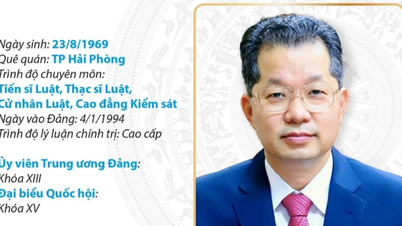













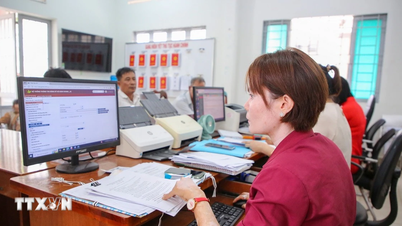



















































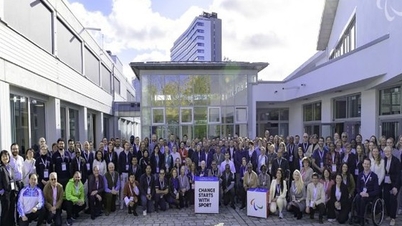


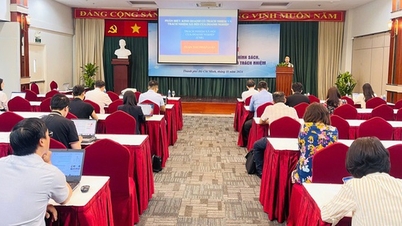

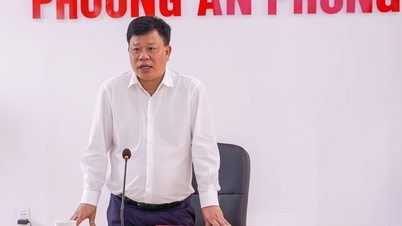

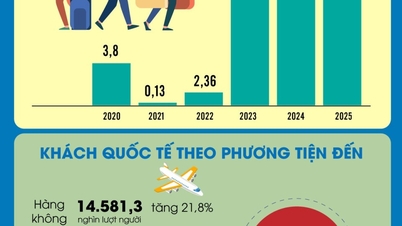

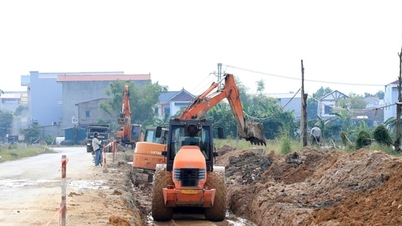

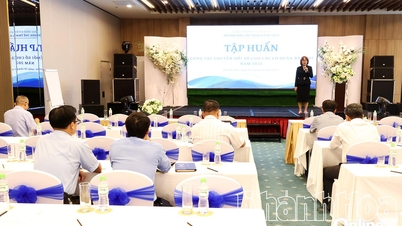



![Dong Nai OCOP transition: [Article 3] Linking tourism with OCOP product consumption](https://vphoto.vietnam.vn/thumb/402x226/vietnam/resource/IMAGE/2025/11/10/1762739199309_1324-2740-7_n-162543_981.jpeg)













Comment (0)